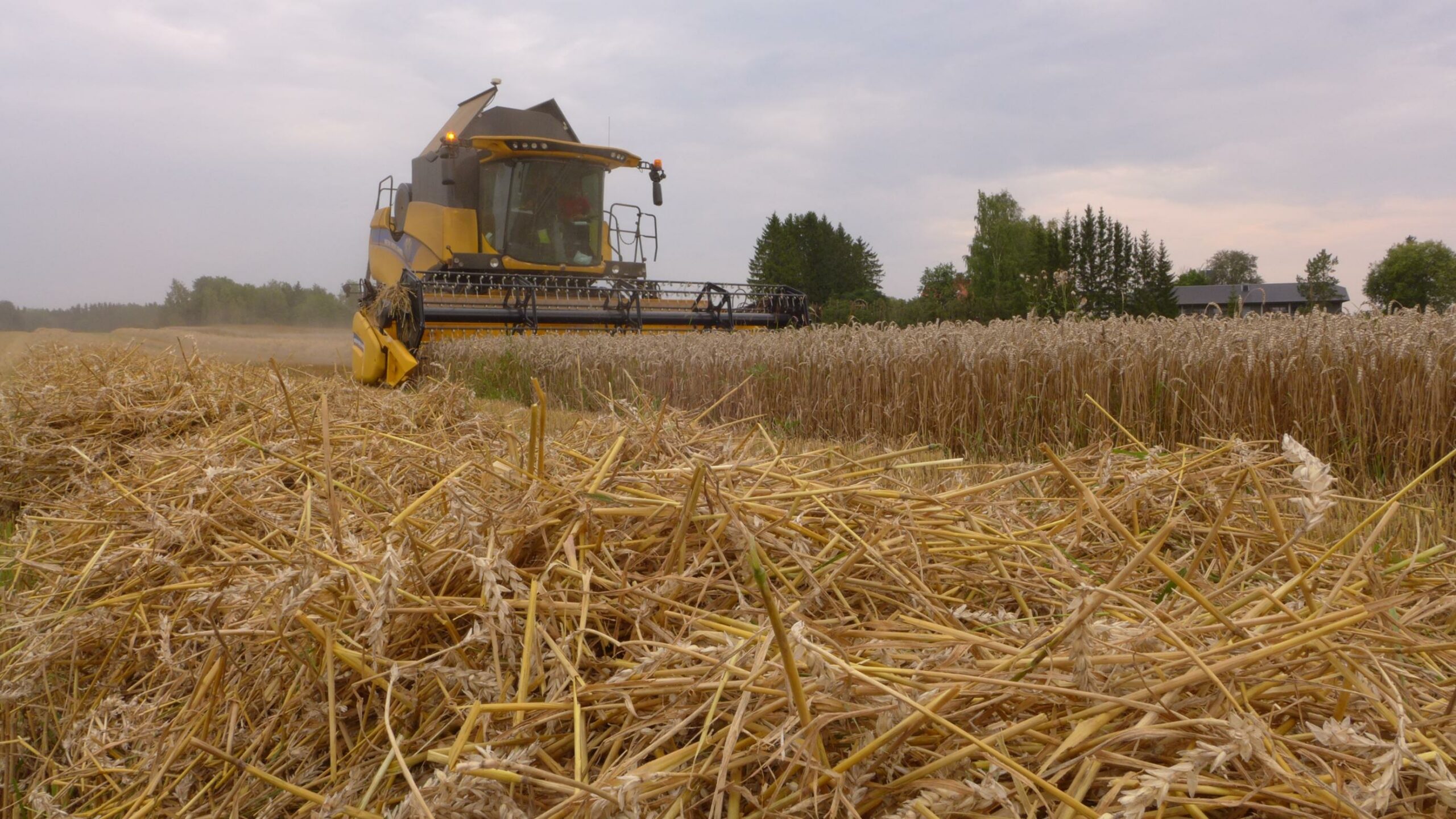
Introducing an ExpandFibre Ecosystem project: Smart storage and supply of straw coordinated by RISE
ProjectsRISE (Research Institutes of Sweden) is coordinating an interesting research project focusing on assessing the utilization potential of straw, a major agricultural residue for biorefinery applications. The project aims to evaluate the potential to increase the availability of straw by harvesting and using straw with an increased water content. An additional ambition is to examine the pre-treatment effect during aerobic storage that can be obtained at an elevated water content by utilizing the straw's natural microorganisms. Ph.D. Carina Gunnarsson from RISE told us more about the project.
Photo provided by RISE.
The ambition for a sustainable society free of fossil fuels has increased the demand for bio-based products and consequently, the demand for biomass. Straw is a highly interesting bio-based resource that is not used to its full potential today and has various applications in biorefineries of the future. For example, in Sweden alone the amount of straw available after deduction for animal production, depending on annual growth conditions, was estimated to approximately 1 million tonnes per year.
Ph.D. Carina Gunnarsson, a Technical Agronomist, is a researcher at the Uppsala office of RISE. In her work she is studying how to use agricultural residues for biorefineries, assessing logistics related to biomaterials and possible pretreatment methods of agricultural residue streams. In the Smart storage and supply of straw project, Carina is acting as the project manager, working together with many stakeholders from research, industry, and agriculture. The project is implemented through collaborating with companies producing bio-based products, and also with local farmers and straw contractors. One of the partners in the project is Fortum Power and Heat Oy, thus bringing in the strong connection to the ExpandFibre Programmes and Ecosystem.
Carina explains that the project involves two storage experiments with straw both in lab and in full-scale trials, used to investigate relationships between dry matter losses, water content and temperature. The trials will evaluate the impact of pre-treatment for straw during its storage and the feedstock quality for various biorefinery applications such as a substrate for biogas production. Carina speculates that during storage of straw with increased water content, a pre-treatment process breaking up the structure of the biomass can be initiated. This will most likely play a major role in the biogas yield of straw or influence the process conditions of biorefinery processes by allowing milder process conditions to be used. Another key point is to decrease the competition between different straw qualities – better quality straw could be reserved for animal production applications, and lower quality fractions could be used for biorefineries.
According to Carina, the project contributes important inputs for a more efficient utilization of straw biomass towards different biorefinery concepts by combining storage and pre-treatment assessments. The project aims to enable large-scale investments in biorefineries by improving conditions along the value chain and increasing the use of agricultural biomass in general. At the same time, the underlying objective is to decrease the heavy reliance on imported fossil fuel resources, and simultaneously strengthen overall the production of bio-based products and fuels in the Nordic countries with locally sourced biomaterials.
The project coordinated by RISE is funded by Energimyndigheten and it was launched in November 2022, expected to run until year 2025. The partners in the project are Fortum Power and Heat Oy, Gasum AB and Södra Skogsägarna AB.